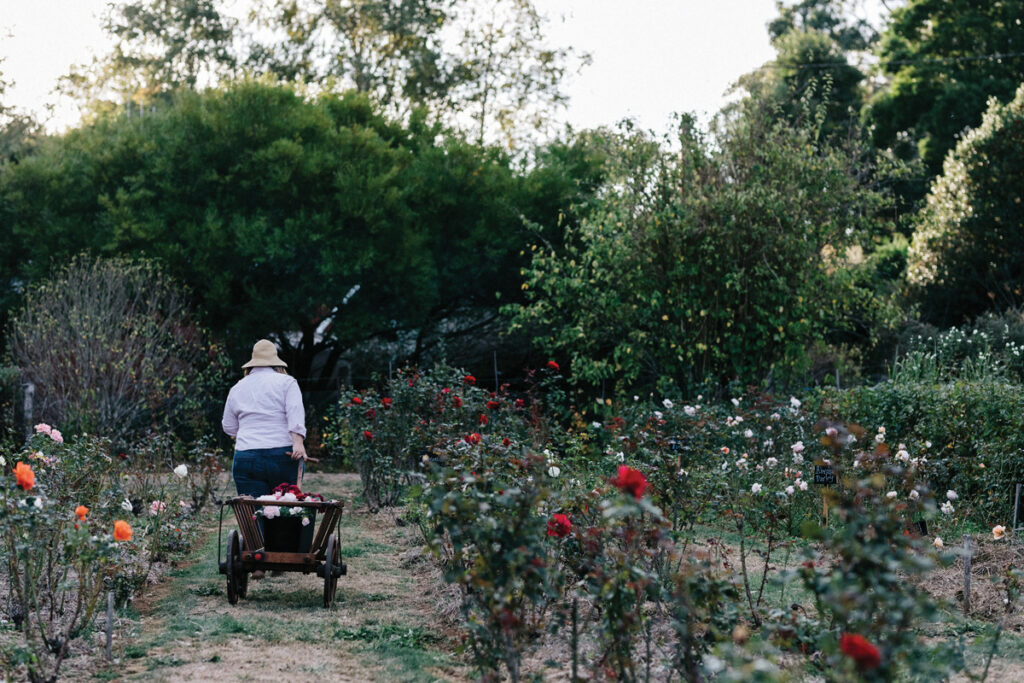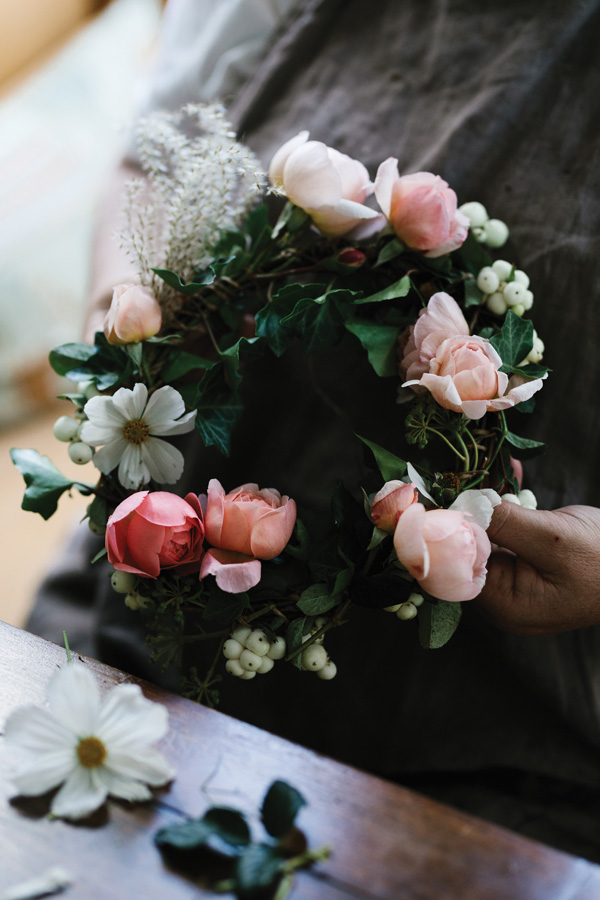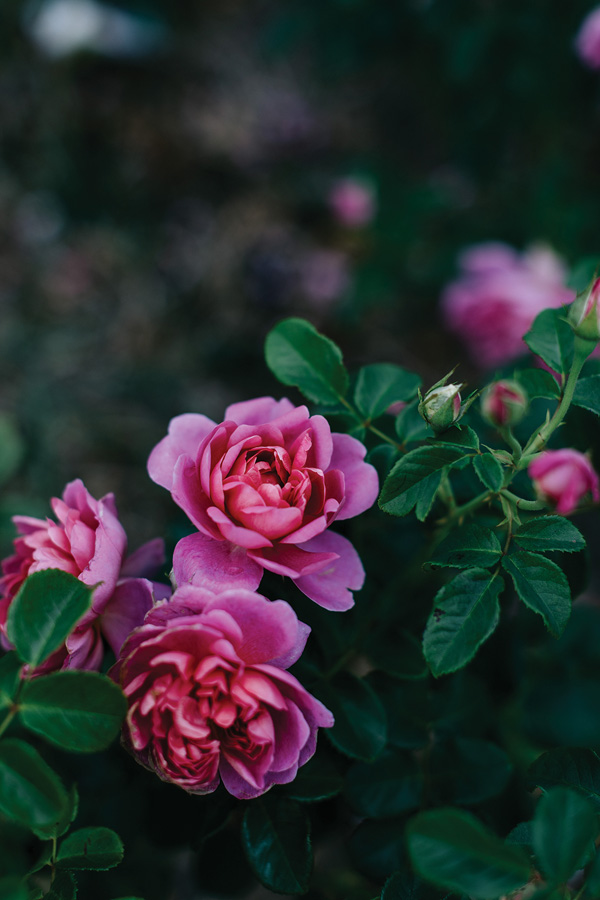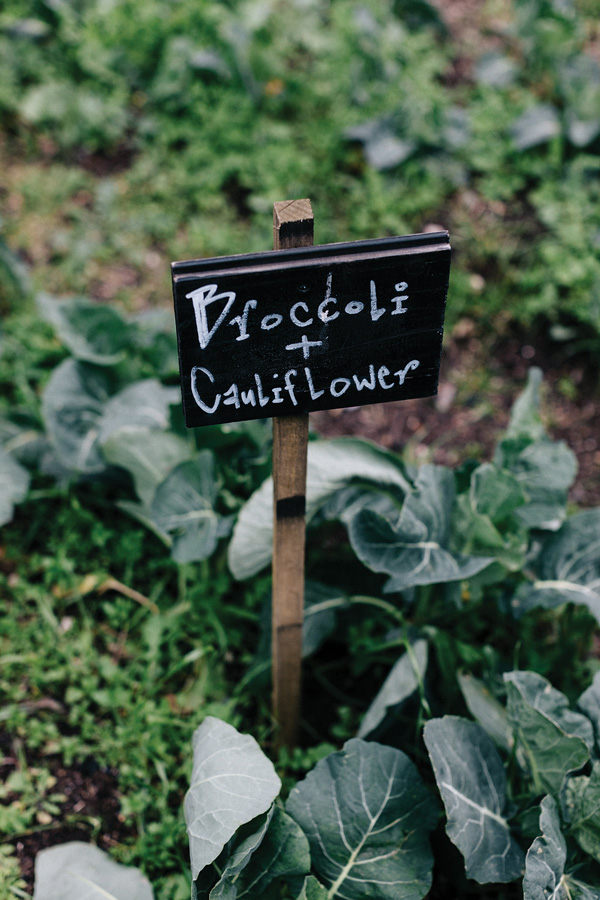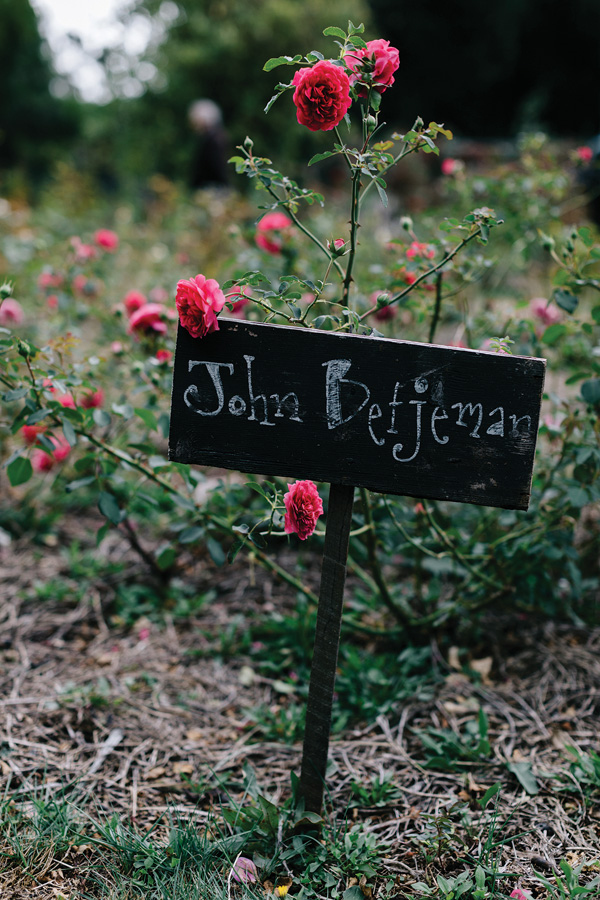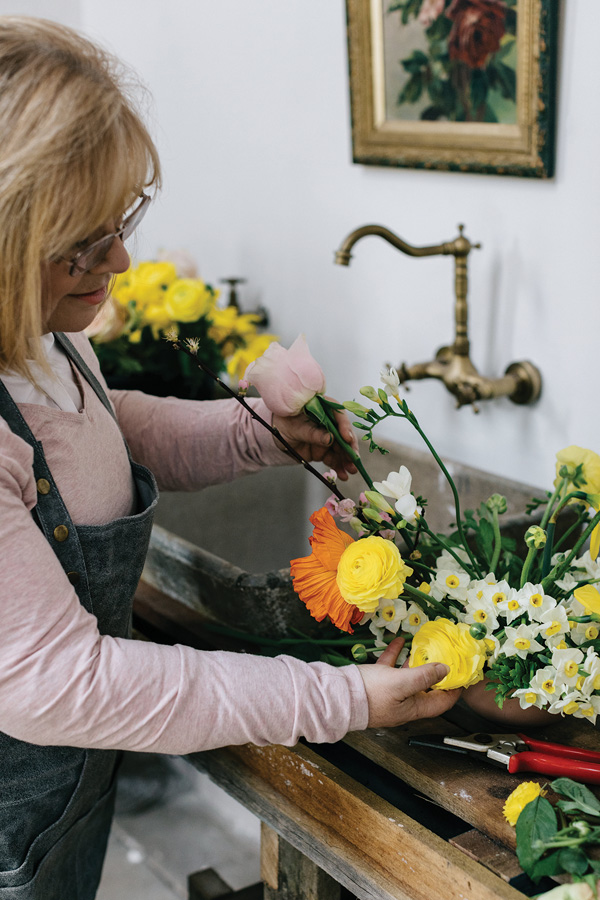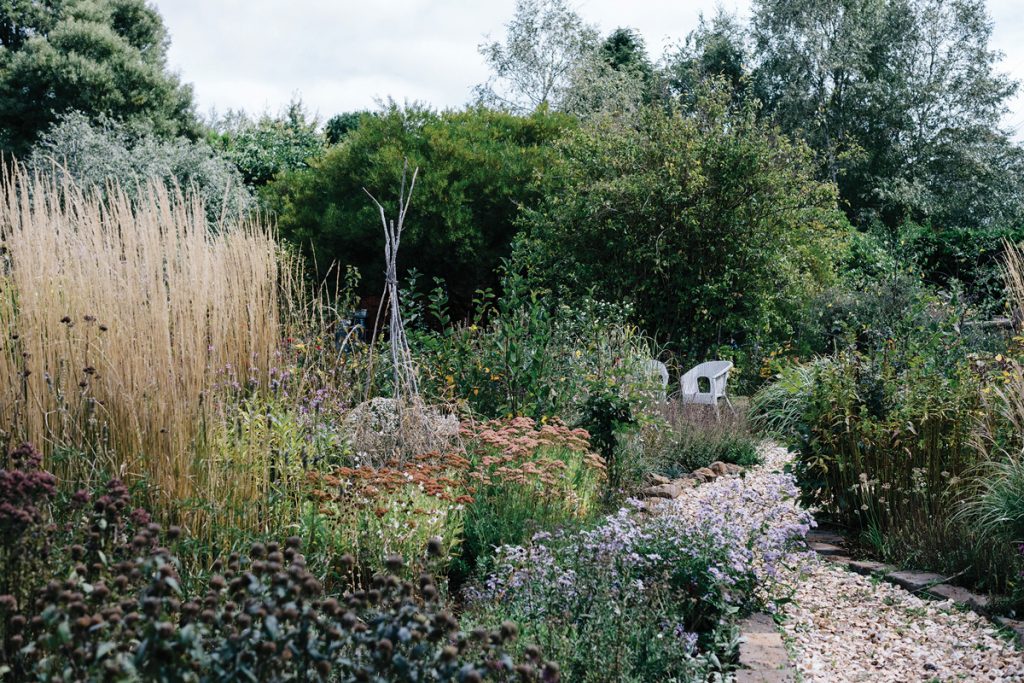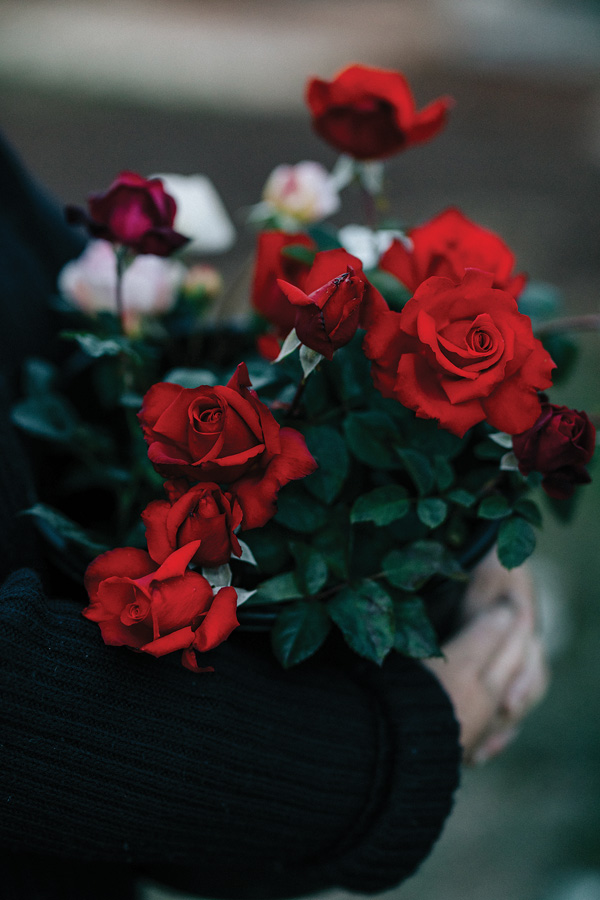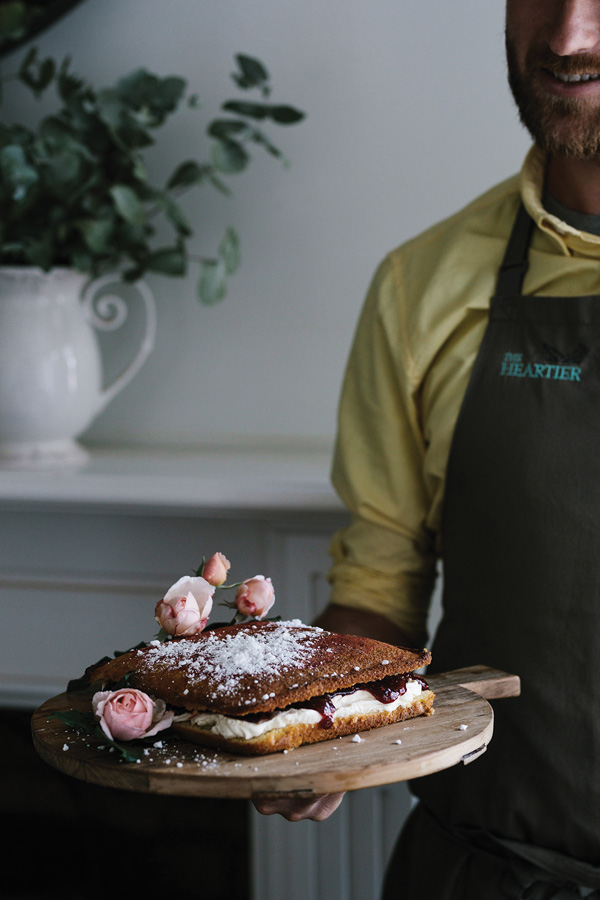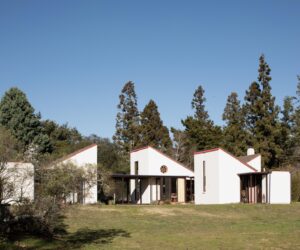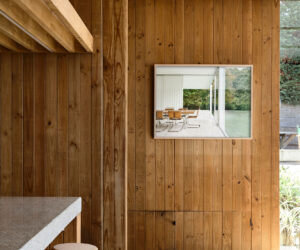Room to Bloom
Sure, we’ve all heard of a tree change, but what about a ‘flower’ change? Sandy McKinley’s move to a Trentham flower farm has lead to a tight-knit community of local growers in pursuit of sustainability.
The long commute after a tree change saw gardener and florist Sandy McKinley finally making the decision to fully embrace her new country life. Along with her partner, Rob Roy she has transformed her Trentham property in Victoria into a business that sustains her passion for nature and all the good things that go with working the land and making a living from it.
Sandy has recently opened her farm for visitors to come and stay and enjoy her working flower farm that allows roses and peonies to grow naturally without chemicals and pesticides, with lots of bees to help with pollination.
First built in the early 1860s as a miner’s cottage, “Acre of Roses”, as Sandy and Rob call it, was being used as a weekender when Sandy first bought it in 2007. “I was living a very corporate life; however, my dream had always been to work with flowers and live in the country,” says Sandy. “I think my childhood with my grandmother was when that started. That was definitely an aspiration – and I’m quite tenacious!”
Sandy and Rob met when Sandy was renovating the house and Rob was the builder. As the building was coming along, Sandy planted 100 of her beloved peonies, with advice and training from her friend and neighbour Helen Lindsay, a wedding florist. Helen trained Sandy in floristry and helped with plant selection and growing. It didn’t take long to realise that peonies only flower for a month a year, so she needed to supplement her range if she was to pursue the business of supplying flowers. As roses were such a popular choice for wedding flowers, Sandy lucked upon a local flower merchant who was looking to downsize and over winter she transplanted a commercial crop of 1500 fragrant roses into her back paddock.
“I was working with a local gardener who was helping me with transplanting the roses and I happened to meet a gorgeous lady called Danielle White who was also thinking about planting some roses on her property ‘Crofters Fold’ in Pipers Creek,” Sandy shares. “I thought it would be interesting to see how things went with her as we were planting roses at the same time, to track her progress and challenges in a different environment. I suppose it was my background in strategic marketing, but I don’t see other people doing the same thing as competition, but more a community that has potential to grow. As we were both supplying flowers for local florists, it was great to have a friend and colleague to discuss tactics!”
“That was when we came up with the concept of Consortium Botanicus, a group of local growers that collaborated and shared knowledge. We both became really interested in the slow flower movement, particularly the work of Amy Stewart … an investigative journalist who uncovered some of the really dodgy practices globally in the flower industry with her book Flower Confidential. As so many flowers are flown all over the world, the levels of fumigation – not to mention the miles they fly and the impact that has – are not sustainable at all. In some cases each single flower has undergone two or three fumigation processes by the time it actually arrives on the floor of the market.”
As Sandy researched more about the industry and flower-growing practices, she was astonished at the level of intervention on the flowers and plants. “There are all sorts of tricks of the trade that made me feel uncomfortable, not to mention the pressure that smaller growers were under with larger companies offering bigger and better versions of the same type of flowers. I have seen fewer and fewer varieties available as the smaller growers are just simply going out of business when they can’t compete.”
The group Sandy helped create, Consortium Botanicus, is helping to support local growers to incorporate low-impact practices to supply a growing demand for local, sustainablygrown flowers. “I think that gardening and doing things with nature with our climate up here is a bit challenging but therefore so much more rewarding, because you know that you’ve really had to work hard to get what you’ve got.”
“In recent history this area was known for growing – our property was originally a market garden. When I retrained as a florist, I noticed how many established flowering plants we already had here on the property. I could go around picking flowers and make a bouquet out of the lovely old trees and shrubs that were already here. They were the things that really attracted me to this property and this area – because I’m a Kiwi – the combination of Australian bush and established European plants.”
